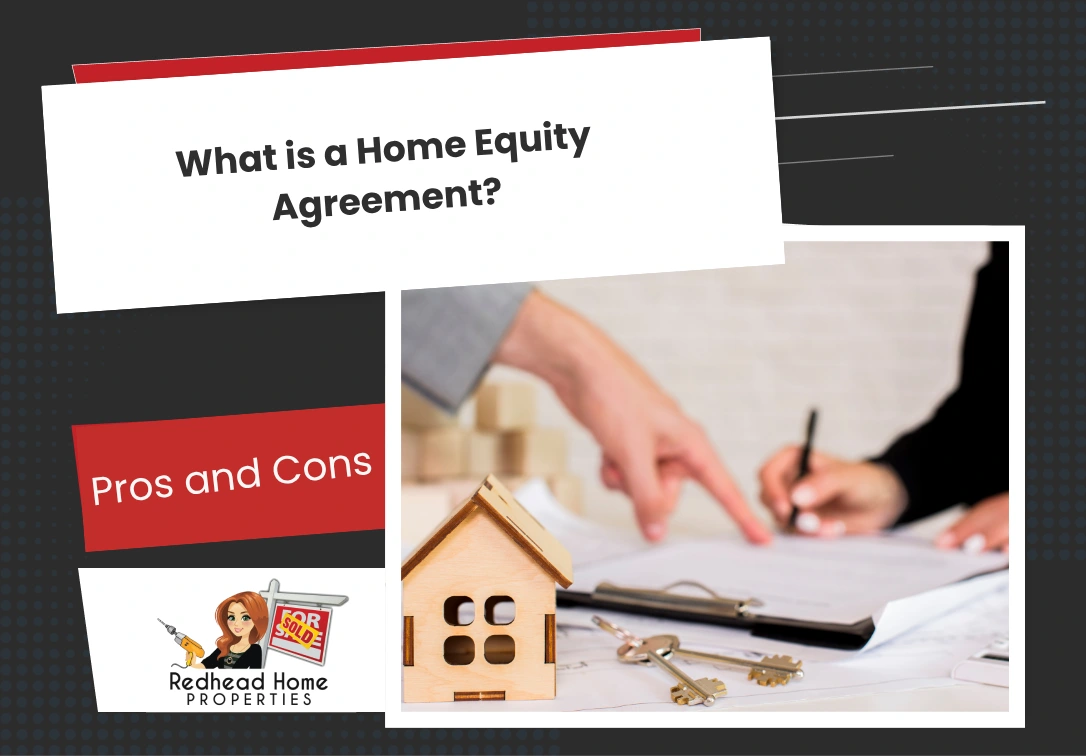
Are you a homeowner? If you are, you might be sitting on a lot of wealth. This wealth is called home equity. It is the part of your home you truly own. Many people need cash. They look at their homes. But they do not want to get a new loan. Taking on more debt is a big worry. Monthly payments can be a real burden.
What if there was another way? What if you could get cash from your home without a loan? This brings us to a topic many are curious about. It is called a home equity agreement. This is a different path. It is not a loan and not HELOC. It is a home equity investment.
Let’s explore what this means to you.
A home equity agreement is a special kind of deal. You get a lump sum of cash from a company. This is not a loan. In return, that company gets a share of your home’s future value. You are in a housing equity partnership with the investor.
You are not borrowing money. That is the most important part. Because you are not borrowing, there is no interest rate. There are no monthly payments. This is the biggest draw for many homeowners. You are selling future equity that you have in your home. You get cash today. The company invests in your home, betting that it will be worth more later.
The process itself is pretty straightforward. First, you apply to a home equity agreement company. You may have heard of companies like Unison or Hometap. These are common examples. They will check your home’s current value, also look at how much equity you have. They will want to see your credit, but the rules are often less strict than for a loan.
If you qualify, they will make you an offer. This offer is a cash amount. It is usually a percentage of your home’s current value. If you accept, you get that cash. You can use it for anything. You might use it for a big project. A home equity loan for home improvements is a common thought, but this cash can be used just like that. Or you can use it to pay off high-interest debt.
The company now has a stake in your home. This is often called a shared appreciation agreement.
When will the deal be over? Typically, you have a limited amount of time. This period is the “term.” It is quite often between 10 and 30 years. You have to return the money to the company within this term. In addition, you give them the money back if you sell your house. Also, if you refinance your mortgage, it can be a trigger for the payment.
The payment is the money that you originally gave me. In addition, you pay the company’s percentage of the increase in your property’s value. So, if the price of your home skyrockets, they get a share of the profit. Whereas if the price drops, some agreements allow them to share the loss with you as well. This is the most important part of the home equity contract explained.
People are talking about these agreements for good reasons. The benefits can be very strong.
This is the number one advantage. It is a no-interest home equity option. You get a large sum of cash. Your monthly bills do not go up at all. For people on a fixed income or who do not want another payment, this is a huge relief. This is the main way of accessing home equity without borrowing.
Getting a loan can be hard. Banks look deep into your credit score. They check your income sources very closely. A home equity agreement is different. The company cares most about your home’s value and your equity. Your credit and income are still factors. But the rules are often more flexible. This makes it a powerful alternative to home equity loan options.
The money you get is yours. You can use it for anything like can repair your roof, can pay for college, can start a business, and can build an emergency fund. This flexibility is a great feature. It gives you freedom.
This all sounds great. But you must look at both sides. The home equity agreement pros and cons are a package deal. The risks are very real and can be very large.
This is the biggest risk. The long-term cost of equity agreements can be much higher than a loan. Think about it. If your home’s value shoots up over the next 10 years, you owe the company a big piece of that growth.
This is home appreciation sharing. In a hot real estate market, you could end up paying back two or three times what you got. You are giving away your home’s future wealth. A loan has a set interest rate. You know the total cost. With an agreement, the cost is unknown.
This is a legal contract. It is a form of real estate equity sharing. The company will place a lien on your property. This means you have a partner in your home’s equity. Selling your home becomes more complex. You cannot just sell and walk away. You have to pay the company their share first.
These contracts are not simple. What happens if you want to make major improvements? What if you want to sell, but the company disagrees with the price? You need to read every single word.

How is this different from a regular home loan? It is very different. Let’s look at home equity vs home equity agreement.
What are home equity loan options? A home equity loan is simple. You borrow a set amount of money. You pay it back with interest each month. The interest rate is usually fixed. You know exactly what you owe and for how long.
A Home Equity Line of Credit, or HELOC, is a bit different. It is like a credit card for your home. You get a credit limit, can draw cash from it as you need. You pay interest only on the money you use. The rate is often variable, meaning it can change. This is one of the main benefits of home equity line of credit.
This equity sharing vs HELOC debate is important. Both HELOCs and home equity loans are debt. You owe money. A home equity agreement is not debt. It is an equity deal.
A HELOC has monthly payments. An agreement does not. But a HELOC’s total cost is capped by its interest rate. An agreement’s cost is tied to your home’s value. That cost could be much, much higher in the long run. These are the home equity financing alternatives you have to choose from.
This product is not for everyone. So, who should be looking into how does a home equity investment work?
It might be for homeowners who have bad credit but a lot of equity. A traditional loan might be impossible to get. A home equity agreement could be their only answer.
It could also be for someone who absolutely cannot afford another monthly payment. This could be a retiree or someone with an unstable income. They need cash now. This gives them a way without adding monthly stress.
This is a home equity cash-out alternative for a specific situation. If you plan to stay in your home for 30 or 40 years, giving up decades of appreciation is probably a bad dealand if now you are selling in five years, you can do the math more easily.
If you are in Florida, for example, options for a home equity agreement Florida are available. But it is very important to review all your state’s specific rules.
Let’s dig into shared equity financing one more time. This is the part that trips people up. The company is taking a big risk on you. They are betting your home’s value will go up.
If it does, they win. They win big. If it does not, they might lose money. Most contracts are written to protect the company, not you. They are investors. They want the best return possible.
You must understand the Unison / Hometap home equity agreement model. These companies are not banks. They are financial partners. Your home is your biggest asset. It is your main tool for building wealth.
Before you sign, consider all your options. Sometimes a traditional sale is a better move. Companies like REDHEAD HOME PROPERTIES can give you a clear cash offer for your home. This helps you compare all your options fairly.
A home equity agreement is a powerful and creative financial tool. It is a real way to get equity out of your home without refinancing. It offers you cash today with no interest and no new monthly bills.
But it comes with serious risks. The home equity agreement pros and cons must be weighed very carefully. You are trading your home’s future growth for cash right now. In some cases, this makes sense. In many others, it can be a costly mistake.
The cost is not a set interest rate. The cost is the share of your home's appreciation you give to the company. If your home value goes up a lot, it can be very expensive. It could cost much more than a loan. If your home value stays flat, it could be cheaper.
This depends on your specific contract. Many shared appreciation agreement contracts include a clause for this. The company is your partner. Just as they share the gains, many will also share the losses. This means your payback amount could be less.
Yes. Companies that offer a home equity agreement Florida option do operate in the state. As with any financial product, the options and rules can change. You should always check with the companies directly to see if your property qualifies.
I'm Zoey Wilson. I am a professional content writer with 5+ years of experience creating research-based, informative, and explicit content to help readers understand the topic, form opinions, and implement processes. My content work combines deep market knowledge and a practical approach, giving you a real picture of today's industry landscape with reliable insights.